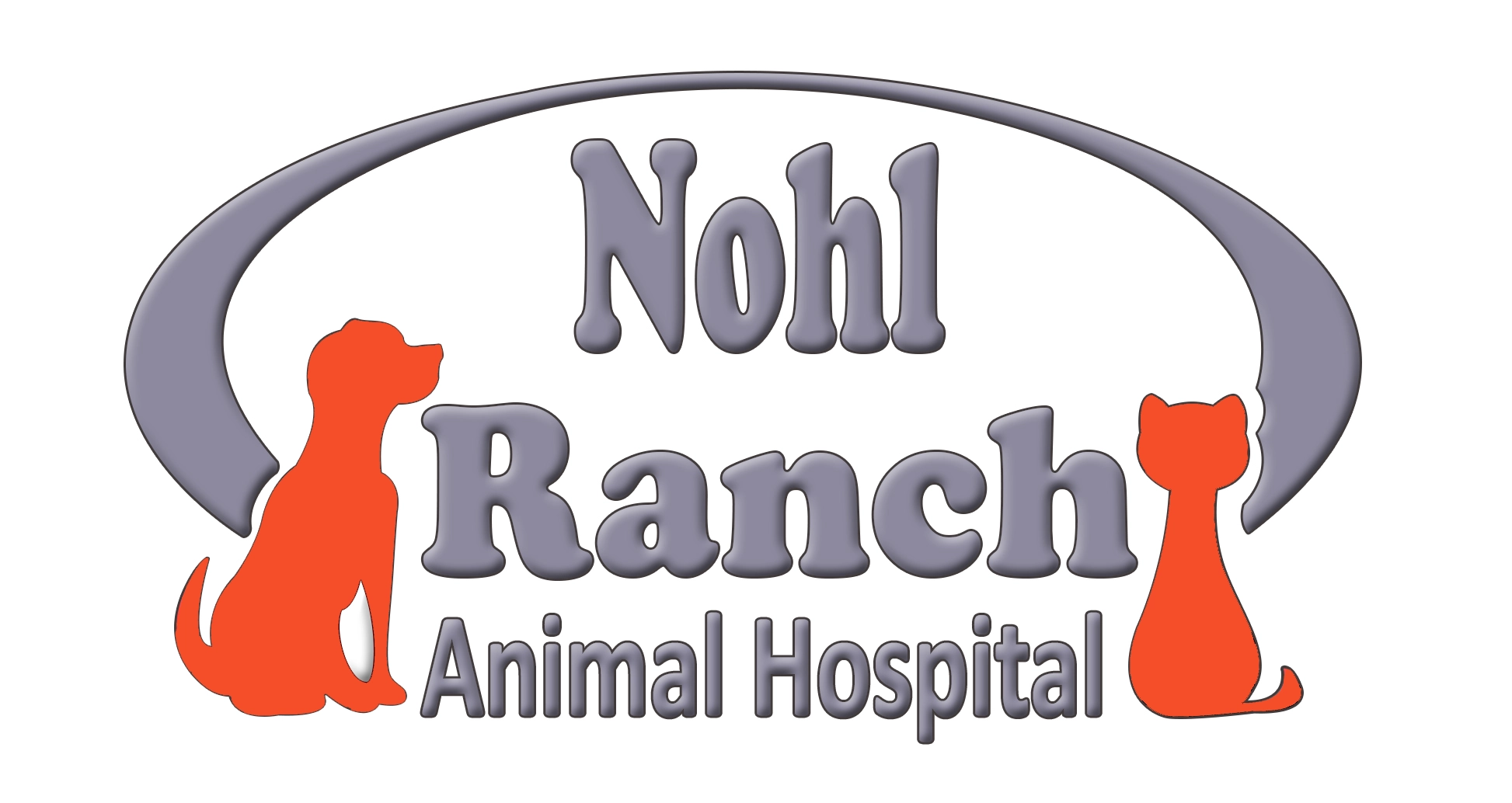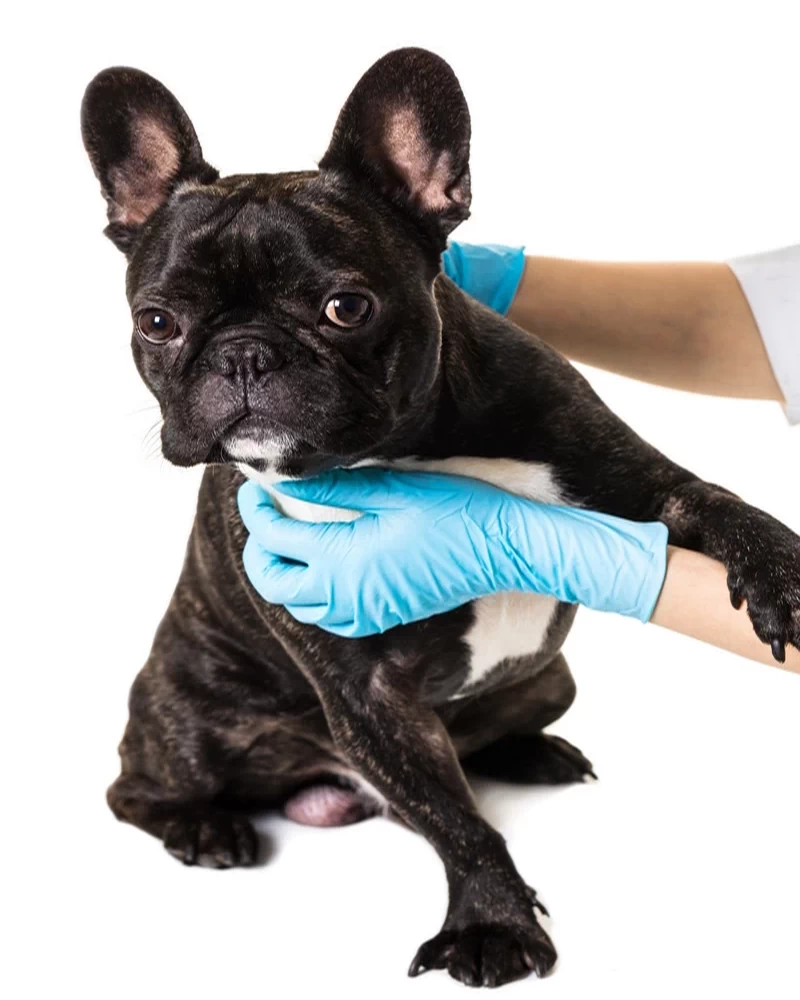
Pets Spay and Neuter
Why Spaying and Neutering Your Pet Is So Important (And Why May Is the Perfect Time!)
Hello again, friends!
Marcel here — your favorite furry guide from Nohl Ranch Animal Hospital! 🐾 Today, I’m excited to talk about something that’s super important for every new pet owner: spaying and neutering. If you’ve just welcomed a new puppy or kitten into your home, or if you’ve been thinking about scheduling their procedure, you’re in the right place!
Even better, this May 2025, we’re making it easier for you by offering 20% off the spay and neuter surgery cost! (Psst: the discount covers the surgery itself, but not additional services like IV catheter, bloodwork, or medications.)
Let’s dive into why this is one of the best decisions you can make for your pet!

What Are Spaying and Neutering?
Spaying is the procedure performed on female pets where the ovaries and uterus are removed. Neutering is for male pets and involves removing the testicles. Some people call it “fixing” — same thing!
These procedures prevent pets from reproducing, but that’s just the start of the many benefits they offer. 😊
Why You Should Spay or Neuter Your Pet
1. Prevent Unwanted Litters
First and foremost, spaying or neutering your pet helps prevent unexpected litters. Every year, millions of animals enter shelters because there just aren’t enough homes. By spaying or neutering, you’re directly helping control the pet population and reducing overcrowded shelters.
2. Health Benefits for Your Pet
Did you know that spaying and neutering can actually extend your pet’s life? It’s true! Here’s how:
- For females: Spaying dramatically reduces the risk of mammary tumors and completely eliminates the risk of uterine infections (pyometra).
- For males: Neutering prevents testicular cancer and lowers the risk of prostate issues.
When you protect your pet from these serious health problems, you’re setting them up for a longer, happier life!
3. Better Behavior at Home
No one likes dealing with spraying, marking, or aggressive behavior. Luckily, neutering reduces the likelihood of territorial marking and can make pets less aggressive.
Spayed females won’t go into heat, meaning no more loud howling, frantic behavior, or attracting unwanted attention from male animals. Sounds like a win-win, right?
4. Reducing Roaming and Escapes
Intact pets often have the urge to wander in search of a mate. This wandering can lead to lost pets, accidents, or even injuries. Spaying and neutering curb that natural instinct to roam, keeping your furry friend safe at home where they belong.
5. Helping the Community
Fewer stray animals mean safer communities. Stray animals are often involved in car accidents or can spread diseases. By spaying and neutering your pets, you’re contributing to a safer environment for everyone — both human and animal!
When Should You Spay or Neuter Your Pet?
At Nohl Ranch Animal Hospital, we recommend scheduling spay or neuter surgery around 6 months of age. However, some pets may benefit from waiting a little longer depending on their breed and size. Our doctors will guide you on the best timing for your specific pet.
Spaying or neutering too early or too late can sometimes impact a pet’s growth and development. That’s why a consultation with our experienced team is key!
What to Expect Before, During, and After Surgery
Before Surgery
Before the big day, your pet will get a thorough physical exam and possibly bloodwork to ensure they’re healthy enough for anesthesia. We’ll also give you instructions on fasting (no food or water after a certain time the night before surgery).
Your pet should be up to date on vaccinations, and it’s a good idea to discuss any current medications or special concerns with our team ahead of time.
During Surgery
Your pet will be under general anesthesia during the procedure. The surgery typically takes about 30 minutes to an hour. We use the safest protocols to monitor your pet throughout the process.
Our surgical team includes highly trained veterinarians and technicians who prioritize comfort, safety, and smooth recoveries.
After Surgery
Recovery is usually quick! Here’s how you can help:
- Limit activity for 10-14 days.
- Prevent your pet from licking or chewing the incision site (hello, stylish “cone of shame”).
- Monitor for any signs of swelling, redness, or discharge.
- Administer any prescribed medications exactly as directed.
Most pets are back to their playful selves in no time! If you notice anything unusual, always call us right away.
Common Myths About Spaying and Neutering
Myth: “It will change my pet’s personality.”
Truth: Your pet will still be the same lovable furball, just without the behaviors tied to mating instincts (like marking or aggression).
Myth: “It’s better for pets to have one litter first.”
Truth: There’s no medical benefit to allowing a litter before spaying. In fact, the sooner you spay, the better the protection against certain cancers.
Myth: “It’s too expensive.”
Truth: Especially with our 20% off surgery discount this May, it’s more affordable than you might think — and it’s an investment in your pet’s long-term health!
Why May Is the Perfect Month to Schedule
With our 20% discount on the surgery cost throughout May 2025, there’s no better time to schedule your pet’s spay or neuter procedure. You’ll save money while setting your pet up for a longer, healthier life.
Plus, Marcel promises to personally give you (and your pet) lots of virtual high-paws for taking this important step! 💪🐾
Taking advantage of this offer also means:
- Shorter wait times before the summer rush.
- Reduced risk of accidental litters during prime mating seasons.
Don’t miss out!
For additional information or to schedule your pet’s Check-up, please call Us. Provide the Coupon when booking your appointment to receive Discount!
At Nohl Ranch Animal Hospital, We always strive for your Pet health mentally and physically.
For More Information, Please Call us at (714)-921-2495 Or Make an Appointment Now!
Nohl Ranch Animal Hospital has been serving pets in “Orange“, “Anaheim“,
“Santa Ana“, “Fullerton” and “Tustin” for more than “15” years.
Join Our Happy Clients From here Contact Us…
We’ll be more than happy to answer all your questions and concerns.
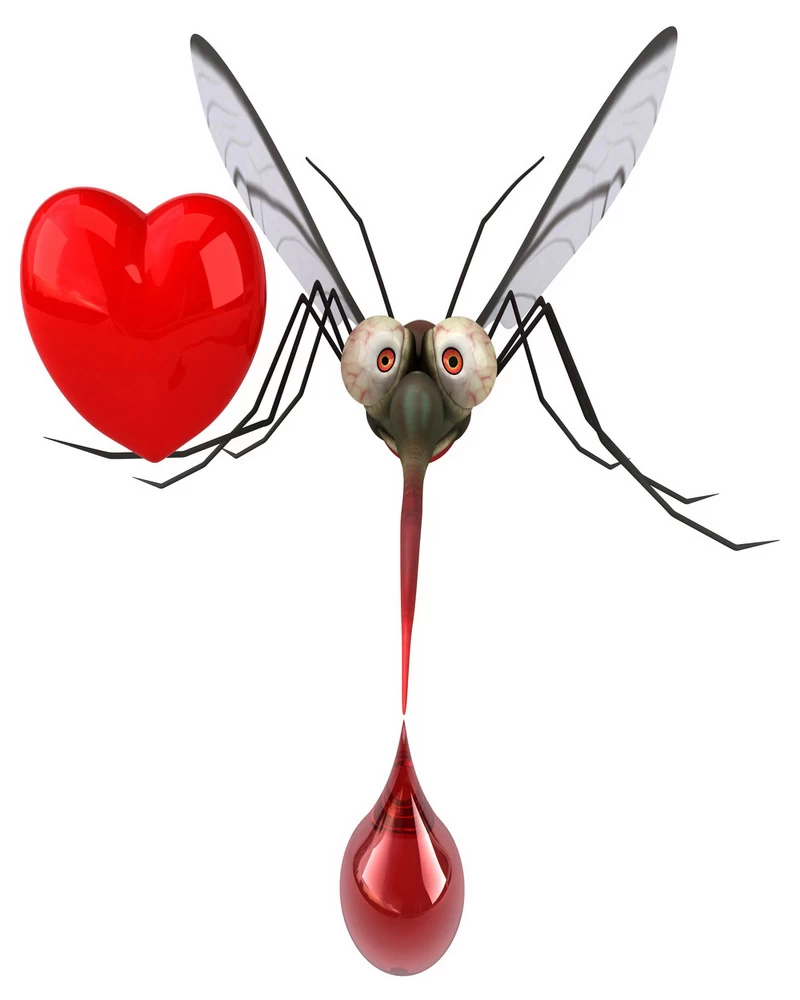
Heartworm Prevention
Why Is Heartworm Prevention So Important?
Heartworm disease is a serious and potentially fatal condition that primarily affects dogs, although cats can also be at risk. This disease is caused by parasitic worms transmitted through mosquito bites, which then travel into your pet’s heart, lungs, and blood vessels, causing severe complications over time.
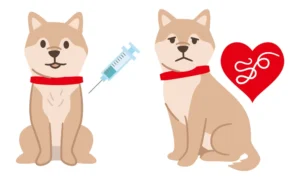
Heartworm Cases Are on the Rise!
Many pet owners believe heartworm disease isn’t common in California, but statistics say otherwise. According to the LA County Public Health, 80% of reported cases showed no symptoms at the time of diagnosis, and nearly 20% of infected dogs had never traveled outside of the state. This means that even if your pet stays local, they are still at risk.
Marcel’s April Special: A Free Heartworm Test!
As part of our commitment to keeping pets healthy, Marcel wants to ensure all pets are protected from this preventable disease. That’s why he’s offering a FREE Heartworm Test when you purchase a 6-month supply of heartworm preventative this month.
📅 Offer Valid: April 1 – April 30, 2025
📍 Where: Nohl Ranch Animal Hospital
📞 Book Now: Call us today to schedule your pet’s heartworm test!
Protect Your Pet This April – Marcel’s Free Heartworm Test Offe****r!
Heartworm disease is a growing concern in Southern California, and at Nohl Ranch Animal Hospital, we take your pet’s health seriously. That’s why Marcel is excited to offer a FREE Heartworm Test with the purchase of a 6-month supply of heartworm preventative during the entire month of April!
How to Protect Your Pet
✅ Routine Testing: Even if your pet is on preventive medication, yearly testing is essential to ensure they are heartworm-free. ✅ Monthly Preventatives: Administering a monthly heartworm preventative is the best way to stop the disease before it starts. ✅ Reduce Mosquito Exposure: Keep your yard mosquito-free by eliminating standing water and using pet-safe mosquito repellents.
The Dangers of Untreated Heartworm Disease
If left untreated, heartworm disease can lead to: ⚠️ Lung disease ⚠️ Heart failure ⚠️ Organ damage ⚠️ Death
Take Advantage of Marcel’s Offer Today!
This limited-time offer is the perfect opportunity to ensure your pet is protected. Call us today to schedule an appointment and claim your free heartworm test with a 6-month supply of preventative! Let Marcel and our team at Nohl Ranch Animal Hospital help you keep your pet safe and healthy. ❤️🐶🐾
For additional information or to schedule your pet’s Check-up, please call Us. Provide the Coupon when booking your appointment to receive Discount!
At Nohl Ranch Animal Hospital, We always strive for your Pet health mentally and physically.
For More Information, Please Call us at (714)-921-2495 Or Make an Appointment Now!
Nohl Ranch Animal Hospital has been serving pets in “Orange“, “Anaheim“,
“Santa Ana“, “Fullerton” and “Tustin” for more than “15” years.
Join Our Happy Clients From here Contact Us…
We’ll be more than happy to answer all your questions and concerns.
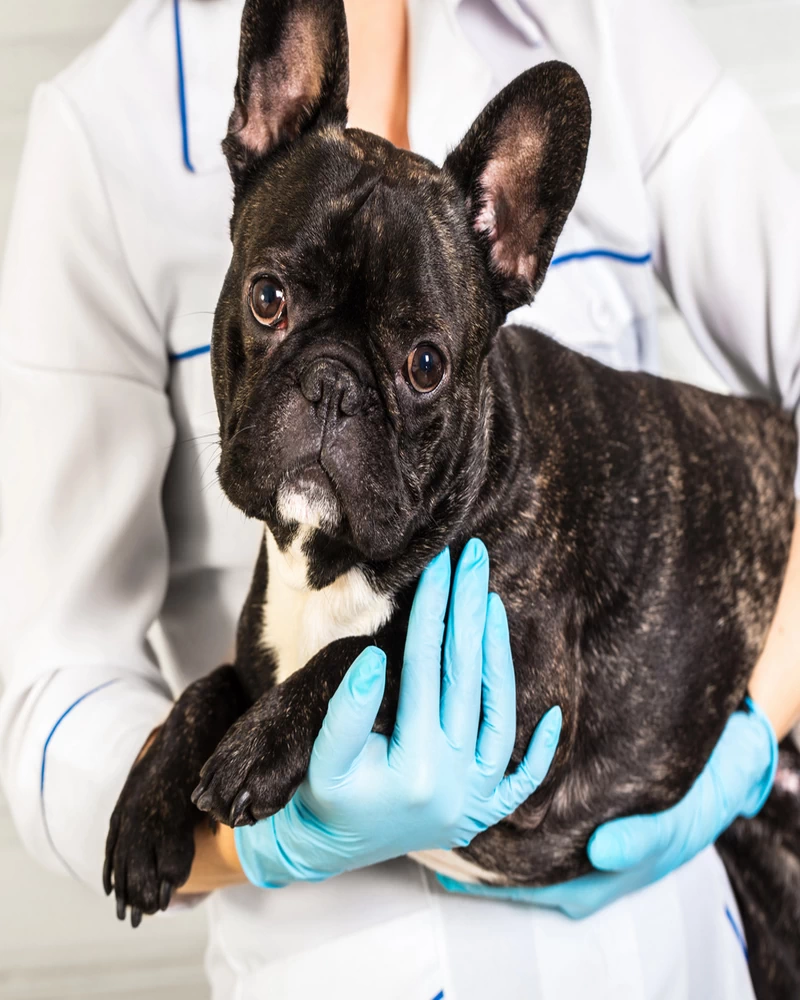
Pet Mass Removal
When to Worry and What to Do
Hey there, pet parents! It’s me, Marcel, your friendly four-legged expert from Nohl Ranch Animal Hospital. Today, I want to talk about something that can make any pet owner feel a little uneasy—finding a lump on your pet. I know, it sounds scary! But don’t panic just yet. Not all lumps are dangerous, and with the right approach, you can ensure your furry friend stays happy and healthy.
If you’ve ever noticed an unusual bump on your pet, you might have wondered, “Is this serious? Does my pet need to see a vet?” The good news is, not all masses are harmful. However, getting them checked by a veterinarian is the best way to ensure your pet’s well-being. Let’s dive into the details of pet lumps, what they mean, and how Nohl Ranch Animal Hospital is offering special discounts this March to help you take action.
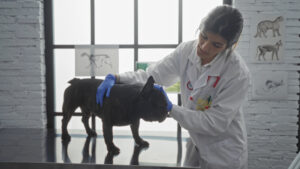
Why Do Pets Develop Lumps?
Lumps and bumps can develop on pets for a variety of reasons. Some are completely harmless, while others require medical attention. Here are a few common causes:
🐾 Lipomas (Fatty Tumors) – These are soft, benign growths made of fat cells. They’re more common in older dogs and usually don’t require removal unless they interfere with mobility.
🐾 Sebaceous Cysts – These small, fluid-filled bumps form due to clogged oil glands. Sometimes they rupture on their own, but in some cases, they may need veterinary care.
🐾 Skin Tags – Just like in humans, pets can develop harmless skin tags that don’t require treatment unless they become irritated.
🐾 Mast Cell Tumors – These lumps can be cancerous, so early detection is essential. They often appear as red, inflamed masses and may grow quickly.
🐾 Abscesses – These painful lumps result from infections, often caused by bites or wounds. They may require draining and antibiotics.
🐾 Soft Tissue Sarcomas – These tumors can be either benign or malignant and may require surgical removal.
Because lumps vary so much, a veterinary evaluation is the best way to determine what’s going on.
Should You Be Concerned About a Lump on Your Pet?
Not all lumps are emergencies, but some do require immediate attention. Here’s how to tell if you should schedule a vet visit:
🔸 It’s growing quickly – Sudden changes in size can indicate a more aggressive mass.
🔸 It’s hard or immovable – If a lump is firmly attached under the skin, it may need further testing.
🔸 It’s causing pain or irritation – If your pet is licking, scratching, or avoiding touch, a vet check is necessary.
🔸 It’s ulcerated or bleeding – Open sores or bleeding growths could indicate a more serious condition.
🔸 Your pet is behaving differently – Lethargy, loss of appetite, or discomfort are all signs to see a vet.
Even if a lump seems minor, it’s always best to get a professional opinion.
How Vets Diagnose and Treat Lumps
At Nohl Ranch Animal Hospital, our team uses different methods to identify and treat lumps, depending on their size, location, and characteristics.
Diagnostic Tests
🩺 Fine Needle Aspirate (FNA) – A small needle extracts cells from the lump for microscopic analysis. This is a quick, minimally invasive procedure that helps determine if the lump is benign or cancerous.
🩺 Biopsy – If more information is needed, a small tissue sample is surgically removed for further testing.
🩺 Cytology – This lab test examines the types of cells in a lump to provide a clearer diagnosis.
🩺 Imaging (X-rays/Ultrasound) – For internal lumps, imaging may be necessary to assess their impact on surrounding organs.
Treatment Options
✔️ Monitoring – If a lump is harmless, your vet may recommend leaving it alone while keeping an eye on changes.
✔️ Surgical Removal – If a lump is growing, causing discomfort, or has the potential to be cancerous, surgical removal may be the best option.
✔️ Medication & Other Therapies – In some cases, medications can help reduce inflammation or treat underlying conditions.
For additional information or to schedule your pet’s Check-up, please call Us. Provide the Coupon when booking your appointment to receive Discount!
At Nohl Ranch Animal Hospital, We always strive for your Pet health mentally and physically.
For More Information, Please Call us at (714)-921-2495 Or Make an Appointment Now!
Nohl Ranch Animal Hospital has been serving pets in “Orange“, “Anaheim“,
“Santa Ana“, “Fullerton” and “Tustin” for more than “15” years.
Join Our Happy Clients From here Contact Us…
We’ll be more than happy to answer all your questions and concerns.

Marcel’s Guide to National Pet Dental Health Month
Keep Those Smiles Bright!
Hey there, pet parents! It’s me, Marcel, your furry friend from Nohl Ranch Animal Hospital. Today, I’m here to chat about something super important—your pet’s dental health! 🦷🐾
Did you know that February is National Pet Dental Health Month? That’s right! This special month is dedicated to raising awareness about the importance of oral health in pets. Although dental care is sometimes overlooked, it plays a crucial role in your pet’s overall well-being. Poor dental hygiene can lead to serious health issues, including infections, tooth loss, and even organ damage.
The good news? You can take simple steps to protect your pet’s smile and health! Let’s dive into everything you need to know about pet dental care.
Why Pet Dental Health Matters
Your pet’s mouth does more than help them eat—it’s a gateway to their overall health. Studies show that 80% of dogs and 70% of cats develop some form of dental disease by the age of three. That’s a staggering statistic!
When plaque and tartar build up, bacteria can enter the bloodstream, affecting vital organs such as the heart, liver, and kidneys. Without proper dental care, pets may suffer from painful infections, difficulty eating, and even a reduced lifespan.
Signs Your Pet May Have Dental Disease
It’s not always easy to spot dental problems, but these warning signs indicate it’s time for a checkup:
🔹 Bad breath – Persistent odor can signal bacterial growth. 🔹 Yellow or brown tartar buildup – Hardened plaque is a key indicator of dental disease. 🔹 Red, swollen, or bleeding gums – These symptoms often point to gingivitis. 🔹 Difficulty chewing or loss of appetite – Painful teeth may cause your pet to avoid food. 🔹 Pawing at the mouth or excessive drooling – These behaviors could mean discomfort. 🔹 Loose or missing teeth – Advanced dental disease may lead to tooth loss.
If you notice any of these signs, don’t wait! Schedule a dental appointment at Nohl Ranch Animal Hospital today.
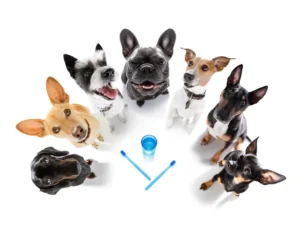
How to Care for Your Pet’s Teeth at Home
Professional dental cleanings are essential, but at-home care is just as important. Here are some easy ways to maintain your pet’s oral health between vet visits:
Daily Brushing
Brushing your pet’s teeth daily is one of the most effective ways to prevent plaque buildup. Be sure to use pet-safe toothpaste—never human toothpaste, as it contains harmful ingredients.
Dental Chews & Treats
Specially designed dental chews help break down plaque while keeping your pet entertained. Look for Veterinary Oral Health Council (VOHC)-approved products for the best results.
Water Additives
Adding a dental solution to your pet’s water helps reduce bacteria and freshen breath. It’s an effortless way to support oral hygiene.
Dental Toys
Chew toys designed to clean teeth can be a great supplement to brushing. Plus, they make dental care fun for your pet!
Healthy Diet
Feeding your pet a balanced diet supports overall health, including oral hygiene. Some pet foods are specifically formulated to promote dental health, reducing plaque accumulation.
Professional Dental Cleanings at Nohl Ranch Animal Hospital
Even with proper at-home care, pets still need professional cleanings to remove tartar and detect underlying issues. At Nohl Ranch Animal Hospital, we provide comprehensive dental services, including:
✔️ Oral Examinations – Identifying signs of disease before they become severe. ✔️ Ultrasonic Scaling & Polishing – Removing plaque and tartar buildup. ✔️ Dental X-rays – Detecting hidden problems beneath the gumline. ✔️ Tooth Extractions – Safely removing damaged teeth when necessary.
After a professional cleaning, your pet will leave with a healthier mouth and fresher breath! Plus, our team will provide guidance on how to maintain their dental health at home.
Exclusive February 2025 Dental Discount – Save BIG! 🦷💰
To celebrate National Pet Dental Health Month, we’re offering an exclusive limited-time discount!
🐶 20% OFF Dental Cleanings 🐱 10% OFF Tooth Extractions
📅 Offer valid throughout February 2025
🐾 Important Details:
- This offer cannot be combined with other promotions or discounts.
- Appointments fill up fast, so book early!
📞 Call us at 714-921-2495 to schedule your pet’s Dental cleaning today!
The History of National Pet Dental Health Month
The importance of pet dental care has been recognized for centuries. Early civilizations understood that animals needed medical attention, though formal veterinary dentistry didn’t emerge until much later.
As far back as 9000 BC, sheepherders in the Middle East cared for their working dogs, ensuring they remained healthy. Although primitive, early caretakers likely performed basic dental care to keep their animals strong. By Ancient Egypt, pets were viewed as valued family members, and some records suggest that wealthier households took steps to maintain their animals’ oral health.
The 19th and 20th centuries marked a turning point in veterinary medicine. Scientists began researching the effects of poor oral hygiene, uncovering a direct link between dental disease and systemic illnesses. As veterinary knowledge expanded, professionals recognized the need for structured pet dental care.
To promote awareness, veterinary organizations introduced National Pet Dental Health Month. This initiative educates pet owners about preventive care, professional cleanings, and early disease detection. Over time, it has grown into a global campaign, emphasizing the importance of routine dental checkups.
Today, extensive research confirms that pets with clean teeth live longer, healthier lives. Veterinary professionals continue to stress the value of dental exams, ensuring pets remain happy and pain-free for years to come.
Keep Your Pet’s Smile Healthy!
Marcel’s Final Tips for a healthier smile:
✅ Schedule a professional dental cleaning at least once a year. ✅ Brush your pet’s teeth regularly at home. ✅ Use dental treats, chews, and water additives to support oral health. ✅ Watch for warning signs like bad breath and gum inflammation. ✅ Take advantage of our February dental discounts to save on cleanings and extractions!
Oral health is a lifelong commitment. Start today to give your furry friend the best chance at a long, happy, and pain-free life!
📞 Call Nohl Ranch Animal Hospital at 714-921-2495 or book online now!
🐾 Marcel & The Nohl Ranch Animal Hospital Team
For additional information or to schedule your pet’s Check-up, please call Us. Provide the Coupon when booking your appointment to receive Discount!
At Nohl Ranch Animal Hospital, We always strive for your Pet health mentally and physically.
For More Information, Please Call us at (714)-921-2495 Or Make an Appointment Now!
Nohl Ranch Animal Hospital has been serving pets in “Orange“, “Anaheim“,
“Santa Ana“, “Fullerton” and “Tustin” for more than “15” years.
Join Our Happy Clients From here Contact Us…
We’ll be more than happy to answer all your questions and concerns.
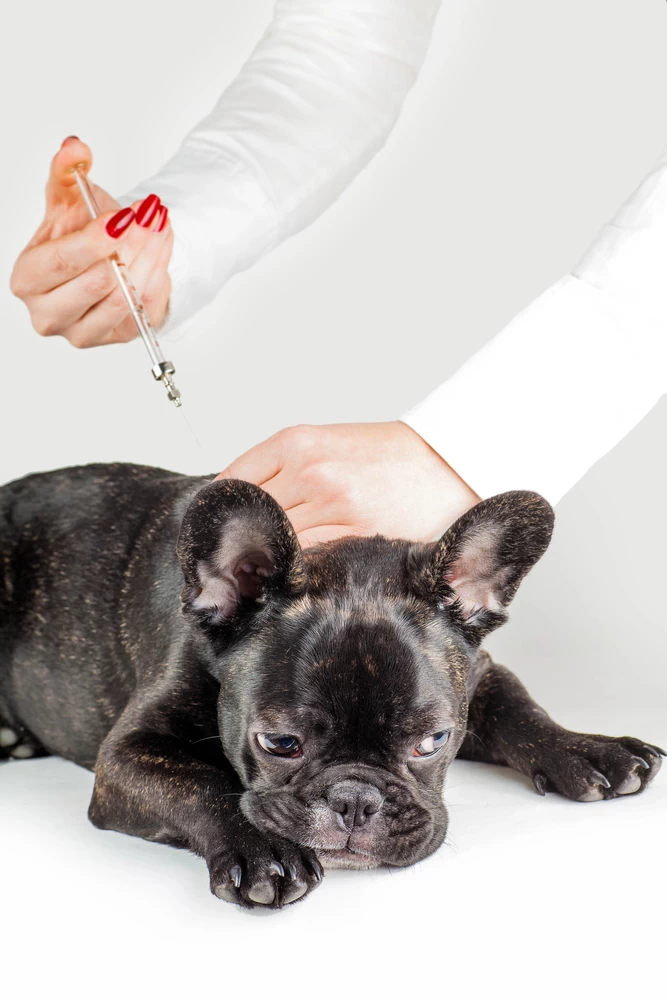
Essential Vaccines for Puppies and Kittens
Marcel’s Guide to Essential Vaccines for Puppies and Kittens
Keeping Your Fur Babies Happy, Healthy, and Protected!
Hey there, pet parents! Marcel here, your trusty friend and ambassador of all things pet care at Nohl Ranch Animal Hospital. Today, I want to chat about something super important—vaccines for puppies and kittens! 🐾 Ensuring that your little fur babies get their essential vaccines is one of the best ways to set them up for a lifetime of good health.
As a proud member of the Nohl Ranch team, I’ve seen firsthand how vaccines protect pets from dangerous diseases. That’s why I’m here to share everything you need to know about essential vaccines, why they’re so important, and what you can expect when vaccinating your puppy or kitten. Let’s dive in!
Why Are Vaccines Important for Puppies and Kittens?
Vaccines are a vital part of your pet’s preventive care. They help protect your furry friends from serious and potentially life-threatening diseases by boosting their immune systems. When puppies and kittens are born, they get some immunity from their mother’s milk, but this protection doesn’t last forever. That’s where vaccines come in!
Without proper vaccination, puppies and kittens are vulnerable to diseases that are not only dangerous but can also be costly to treat. Vaccines are a simple and effective way to keep them safe, healthy, and thriving.
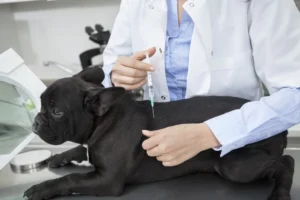
Core Vaccines vs. Non-Core Vaccines
Vaccines for pets are divided into two categories: core vaccines and non-core vaccines.
Core Vaccines
Core vaccines are considered essential for all puppies and kittens because they protect against diseases that are widespread, severe, or highly contagious. These include:
Distemper Virus
A highly contagious disease that affects the respiratory, digestive, and nervous systems of dogs and puppies. It’s often fatal, but the vaccine provides excellent protection.
Parvovirus
This deadly virus causes severe gastrointestinal symptoms like vomiting, diarrhea, and dehydration. Puppies are especially at risk, but vaccination offers strong protection.
Adenovirus (Canine Hepatitis)
This virus affects a dog’s liver and other organs. Vaccination prevents both the adenovirus and related illnesses.
Rabies
-
- A fatal virus that affects the nervous system and can be transmitted to humans. Vaccination is not only essential but also required by law.
For kittens, core vaccines include:
Feline Panleukopenia (Distemper)
A highly contagious virus that can cause severe symptoms and is often fatal without vaccination.
Feline Herpesvirus (FHV-1)
This virus causes upper respiratory infections in cats. The vaccine minimizes symptoms and protects against outbreaks.
Feline Calicivirus
Another respiratory virus that affects cats, leading to sneezing, nasal discharge, and oral ulcers.
Rabies
-
- Just like for dogs, the rabies vaccine is crucial for cats as well.
Non-Core Vaccines
Non-core vaccines are recommended based on your pet’s lifestyle, environment, and risk factors. These include:
- Leptospirosis Vaccine (Dogs): Protects against a bacteria that can affect the kidneys and liver.
- Lyme Disease Vaccine (Dogs): Protects against tick-borne illnesses.
- Feline Leukemia Virus (FeLV) Vaccine (Cats): Protects against a serious virus that weakens a cat’s immune system.
When you visit Nohl Ranch Animal Hospital, our veterinarians will assess your pet’s individual needs to recommend the right vaccines. We’re here to tailor a vaccination plan that works best for your furry friend.
Risks of Spaying and Neutering
Like any surgery, spaying and neutering do come with some risks. However, these risks are minimal, and most pets recover quickly with proper care. Let’s take a look at what to watch for.
Anesthesia Concerns
Anesthesia is required for spaying and neutering. Although rare, there can be complications related to anesthesia, such as allergic reactions or difficulty breathing. However, your veterinarian will take every precaution to minimize these risks. The benefits of the procedure far outweigh these minimal risks.
Surgical Complications
While spaying and neutering are common surgeries, there’s always a small chance of complications. These could include bleeding or infection at the incision site. But don’t worry—our skilled veterinarians at Nohl Ranch Animal Hospital take every measure to ensure your pet’s safety.
Weight Gain and Behavior Changes
Some pets tend to gain weight after being spayed or neutered. This happens because their metabolism can slow down a bit. It’s important to monitor their diet and ensure they get enough exercise to stay in shape. On the flip side, neutering can sometimes cause behavioral changes. While many pets become calmer, some may become a little more laid-back than usual.
When Should Puppies and Kittens Get Vaccinated?
Puppies and kittens start receiving vaccines as early as 6 to 8 weeks of age. After that, they’ll need a series of booster shots every 3 to 4 weeks until they’re about 16 weeks old. This ensures they build strong immunity to protect them as they grow.
Here’s a typical puppy and kitten vaccination schedule:
- 6–8 weeks: First round of core vaccines (Distemper, Parvovirus, etc.)
- 10–12 weeks: Booster shots and additional vaccines as needed
- 14–16 weeks: Final round of boosters, including rabies
- 1 year: Annual boosters and non-core vaccines based on lifestyle
At Nohl Ranch Animal Hospital, we’ll create a personalized vaccination schedule for your puppy or kitten to make sure they’re fully protected.
What to Expect During a Vaccination Appointment
When you bring your puppy or kitten to Nohl Ranch Animal Hospital, we make sure the experience is as smooth and stress-free as possible—for both you and your furry friend! Here’s what you can expect during a vaccination appointment:
A Comprehensive Health Check
Before administering any vaccines, our veterinarians will perform a full health exam to ensure your pet is healthy enough for the shots.
The Vaccination Process
Vaccines are administered as an injection, typically in the scruff of the neck or leg. Don’t worry—our skilled team ensures the process is quick and gentle.
Post-Vaccine Monitoring
-
- After the vaccines are given, we’ll monitor your pet for a short time to make sure there are no adverse reactions. Most pets handle vaccinations like champs!
Are There Any Side Effects?
Vaccines are incredibly safe, but like any medical procedure, there’s a small chance of side effects. Common side effects include mild swelling at the injection site, low energy, or slight soreness. These symptoms usually resolve within 24 to 48 hours.
If you notice any more serious reactions, such as difficulty breathing, swelling of the face, or persistent vomiting, contact us immediately. At Nohl Ranch Animal Hospital, we’re here to ensure your pet’s safety every step of the way.
Marcel’s Pro Tip: Prevention is Key!
As your friendly ambassador, I can’t stress this enough—prevention is always better than treatment. Vaccines are a simple, effective, and affordable way to protect your pets from illnesses that can be life-threatening or costly to treat. Plus, getting your pets vaccinated keeps other pets and even humans safe, too!
Why Choose Nohl Ranch Animal Hospital for Vaccinations?
At Nohl Ranch Animal Hospital, we pride ourselves on providing compassionate, top-quality care for all our furry patients. Here’s why so many pet parents choose us:
- Expert Care: Our skilled veterinarians have years of experience vaccinating puppies and kittens.
- Personalized Plans: Every pet is unique, and we tailor vaccination schedules to meet your pet’s specific needs.
- Affordable Options: We offer regular vaccine clinics and promotions to make preventive care accessible to everyone.
- A Friendly Atmosphere: From cuddles to treats, we make sure your pet feels loved and comfortable during every visit.
For additional information or to schedule your pet’s Check-up, please call Us. Provide the Coupon when booking your appointment to receive Discount!
At Nohl Ranch Animal Hospital, We always strive for your Pet health mentally and physically.
For More Information, Please Call us at (714)-921-2495 Or Make an Appointment Now!
Nohl Ranch Animal Hospital has been serving pets in “Orange“, “Anaheim“,
“Santa Ana“, “Fullerton” and “Tustin” for more than “15” years.
Join Our Happy Clients From here Contact Us…
We’ll be more than happy to answer all your questions and concerns.

Spay and Neuter
What Are Spaying and Neutering?
Hello! Marcel here again, your friendly guide from Nohl Ranch Animal Hospital, and today I want to talk about something super important for every pet parent to know: spaying and neutering. If you’re wondering about these procedures, you’re in the right place. I’ll explain what they are, why they’re beneficial, and what to expect before, during, and after the surgery. Let’s dive in!
First things first, what exactly do spaying and neutering mean? Spaying is the procedure for female pets where the ovaries and uterus are removed. Neutering, on the other hand, is for male pets and involves the removal of the testicles. These procedures prevent pets from having babies, which helps control the pet population. You might have heard people call it “fixing” or “sterilizing,” but it’s all the same thing.
The surgeries typically take between 30 minutes to an hour. Your pet will be under general anesthesia, so they won’t feel a thing. For females, the vet makes an incision in the abdomen to remove the ovaries and uterus. For males, the incision is made in the scrotum, and the testicles are removed.
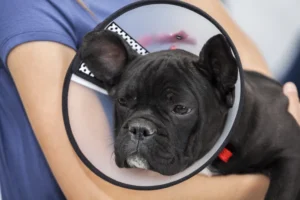
Benefits of Spaying and Neutering
Now, let’s talk about why these procedures are so important, not just for you but also for your pet’s health and behavior.
Prevention of Unwanted Litters
One of the biggest reasons to spay or neuter your pet is to prevent unwanted litters. Imagine your female dog or cat having a bunch of babies and no way to find them all good homes. Many animals that end up in shelters come from unplanned pregnancies. By getting your pet spayed or neutered, you’re helping to reduce the number of homeless animals.
Reduced Risk of Health Issues
Did you know that spaying and neutering can prevent certain health problems down the road? For females, spaying drastically lowers the chances of developing mammary gland tumors and uterine infections. For males, neutering reduces the risk of prostate issues and testicular cancer. A healthier pet means fewer vet visits and more time for fun together!
Better Behavior
Have you noticed how some pets tend to mark their territory or show aggression? Neutering can improve behavior, especially in males. It reduces territorial marking, roaming, and even aggressive tendencies. In females, spaying eliminates the behavior associated with heat cycles, like howling, restlessness, and attracting unwanted attention from male pets. A calmer, better-behaved pet makes life easier for everyone.
Helping Control Pet Overpopulation
Pet overpopulation is a serious issue, especially in shelters. Spaying and neutering your pets help reduce the number of stray animals on the streets and in animal shelters. Fewer strays mean fewer animals being euthanized due to overpopulation. It’s one small step toward solving a big problem.
Risks of Spaying and Neutering
Like any surgery, spaying and neutering do come with some risks. However, these risks are minimal, and most pets recover quickly with proper care. Let’s take a look at what to watch for.
Anesthesia Concerns
Anesthesia is required for spaying and neutering. Although rare, there can be complications related to anesthesia, such as allergic reactions or difficulty breathing. However, your veterinarian will take every precaution to minimize these risks. The benefits of the procedure far outweigh these minimal risks.
Surgical Complications
While spaying and neutering are common surgeries, there’s always a small chance of complications. These could include bleeding or infection at the incision site. But don’t worry—our skilled veterinarians at Nohl Ranch Animal Hospital take every measure to ensure your pet’s safety.
Weight Gain and Behavior Changes
Some pets tend to gain weight after being spayed or neutered. This happens because their metabolism can slow down a bit. It’s important to monitor their diet and ensure they get enough exercise to stay in shape. On the flip side, neutering can sometimes cause behavioral changes. While many pets become calmer, some may become a little more laid-back than usual.
What to Expect Before the Procedure
Now, let’s talk about how to prepare for your pet’s spay or neuter surgery. Before the big day, your veterinarian will perform a physical exam and possibly do some blood work. This ensures your pet is healthy and ready for surgery. You’ll likely need to withhold food and water for a certain period before the procedure. It’s all for their safety, I promise!
During the Procedure
On the day of the surgery, your pet will be placed under general anesthesia. The vet will make a small incision either in the abdomen (for females) or the scrotum (for males) and remove the reproductive organs. The incision is then closed up, and your pet is closely monitored until they wake up.
What to Expect After the Procedure
Recovery time is usually quick, but there are some things you’ll need to do at home to help your pet feel better. Right after the procedure, your pet may feel a little groggy from the anesthesia. They might also have a slight decrease in appetite. Don’t worry—this is completely normal.
Post-Surgery Care
Make sure to keep your pet calm and limit their activity for a few days after the surgery. Your vet might give you a cone (yep, the “cone of shame”) to prevent them from licking the incision site. Most pets recover fully within 10-14 days.
The Importance of Spaying and Neutering in California
If you live in California, you should know that the state strongly encourages pet owners to spay and neuter their animals. With the high number of stray animals here, the procedure is more important than ever. Many cities and counties even have laws in place requiring pets to be spayed or neutered unless you have a special permit.
Conclusion
So there you have it! Spaying and neutering not only help control the pet population but also protect your pet’s health and improve their behavior. It’s a simple procedure with lasting benefits. And if you’re worried about the risks, our team at Nohl Ranch Animal Hospital is here to ensure everything goes smoothly.
Have any more questions? Come see me and the awesome team at Nohl Ranch Animal Hospital! We’re always here to help. And don’t forget—we’re offering great discounts on spaying and neutering services. Marcel signing off, but I’ll be back with more tips soon! 🐾
For additional information or to schedule your pet’s Check-up, please call Us. Provide the Coupon when booking your appointment to receive Discount!
At Nohl Ranch Animal Hospital, We always strive for your Pet health mentally and physically.
For More Information, Please Call us at (714)-921-2495 Or Make an Appointment Now!
Nohl Ranch Animal Hospital has been serving pets in “Orange“, “Anaheim“,
“Santa Ana“, “Fullerton” and “Tustin” for more than “15” years.
Join Our Happy Clients From here Contact Us…
We’ll be more than happy to answer all your questions and concerns.
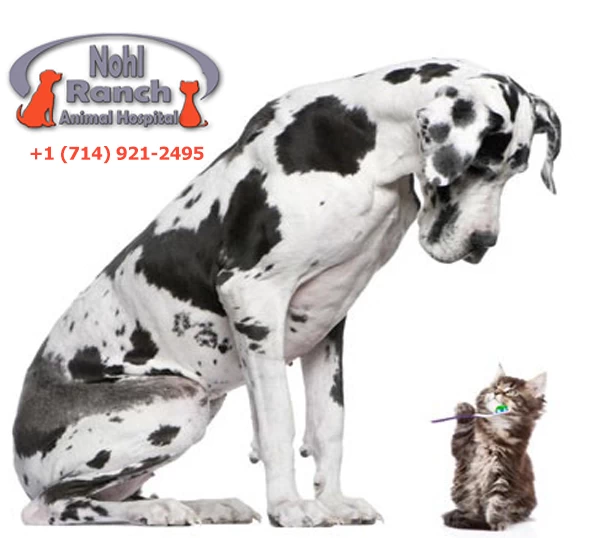
Pets Dental Care
Pets Dental Care is very important for your pet’s health.
If your pet is older than 3 years, you should consider a dental Care checkup and cleaning, most pets suffer from dental diseases that will lead to bad breath, and pain and increase the chances of infections.
Pet’s oral infections if ignored will lead to more complex digestive problems and other health problems such as liver, heart, and kidney problems.
Symptoms of pet dental Disease
- Bad breath – one of the first and early signs of dental disease
- A yellowish-brown crust of plaque on the teeth near the gum line
- Swollen gums or yellow-brown tartar
- Pain or bleeding of the mouth or gums
- Difficulties in eating, weight loss, and decreased appetite
- Inflamed Red-gums
- Excessive drooling
- Change in eating habits
- Pawing at the mouth or rubbing the face against the floor or furniture
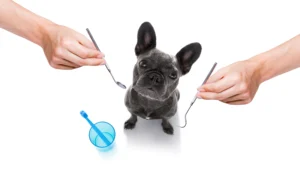
Nohl Ranch Animal Hospital Dental Exam and treatment
When rough tartar accumulates on tooth surfaces and touches the gum line it’s time for a professional oral assessment, treatment, and prevention visit. This visit will include a thorough dental examination, teeth cleaning, and polishing to remove the tartar and invisible plaque from all the tooth surfaces.
For proper dental care, your dog will be placed under general anesthesia. Once your dog is under general anesthesia, Dr. Louka and our veterinary assistants will thoroughly examine the mouth, noting abnormalities in the medical record. A dental probe will be used to evaluate gum bleeding and periodontal pockets where food can accumulate if not cared for. Then we start the dental cleaning process.
In some cases, we would have to extract a bad tooth that cannot be possibly saved due to severe periodontal disease.
